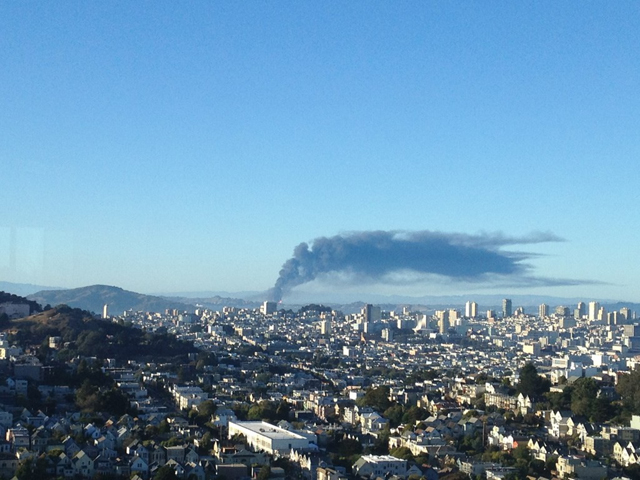Breathing Fumes

Today in the Bay Area, we are still feeling the effects of the toxic fire at a Chevron refinery in Richmond, California. Hundreds of people from the surrounding area have sought medical care. It's hitting folks with chemical sensitivities and asthma especially hard - some friends who live 15 miles away in Oakland are reporting difficulty breathing the toxic air.The Asian Pacific Environmental Network is reporting that Chevron's system for warning the public failed last night, so many people in the area weren't able to take precautions to keep themselves from getting sick. APEN and others worked hard to get a multilingual warning system in place for just such a disaster. It feels like a hard lesson today that even "successful" campaigns to win health and safety protections ultimately do so little to protect us when Chevron's primary allegiance continues to be profit over people.Upstream in Montana, nine people are completing an 80-mile walk calling for an end to oil exploration and fracking on the Blackfeet Reservation. The "water walkers" are carrying a jar of water representing all the water on the reservation. They are asking the Blackfeet Tribal Business Council to place a moratorium on further oil exploration to protect the water as sacred and be good stewards of the land for future generations.It has me thinking today about strategies for fighting oil development that is destroying our environment, our health, and our communities. Do we focus on reducing our dependence on oil - by biking and not using plastics? Do we fight for health and safety protections while letting oil development continue? Do we keep oil companies from developing more land? How do we choose strategies that inspire people in a community to fight? Can any one strategy win?What other strategies are you using, or seeing used, to fight oil development? What successes are inspiring you? What else do you think can and should be tried, particularly from our understanding of the world as Buddhists?